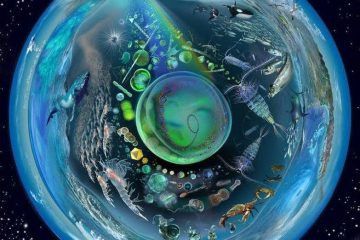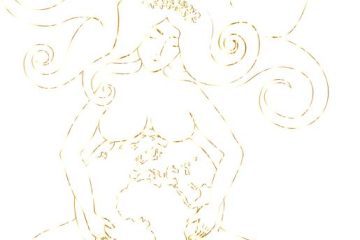Embark on a journey through the intricate web of ecological theories as we unravel the complexities surrounding the Gaia Hypothesis. While this concept captivates many with its portrayal of Earth as a self-regulating organism, it is crucial to delve into its shadows and explore the weaknesses that lurk beneath its surface. Join us as we navigate the realms of scientific skepticism and delve into the nuanced critiques that challenge the foundations of this thought-provoking hypothesis.
Table of Contents
- Challenges to the Gaia Hypothesis
- Unraveling the Limitations
- Exploring Alternative Perspectives
- Navigating the Criticisms and Suggestions
- Q&A
- In Conclusion
Challenges to the Gaia Hypothesis
While the Gaia Hypothesis proposes an intriguing perspective on the Earth as a self-regulating system, it is not without its challenges and criticisms. One notable weakness is the difficulty in providing concrete evidence to support the idea of Earth as a single organism, as opposed to a collection of interconnected ecosystems. This lack of empirical evidence makes it challenging to fully validate the hypothesis.
<p>Another challenge to the Gaia Hypothesis lies in its teleological implications, implying that the Earth has a purpose or goal. This notion of Earth behaving as a living entity with intentions raises philosophical and scientific questions about the true nature of the planet's interconnected systems and processes. Without definitive proof of purposeful Earth behavior, the hypothesis remains a subject of debate and speculation in scientific circles.</p>
Unraveling the Limitations
When delving into the realm of ecological theories, it becomes imperative to acknowledge the Gaia hypothesis weaknesses that have stirred debates among scientists and nature enthusiasts alike. These limitations shed light on the complexities of our planet’s interconnected systems and the humbling nature of our understanding.
One notable weakness lies in the challenge of defining Gaia’s boundaries. The intricate web of interactions between living organisms and their environment defies clear-cut delineations, posing a conundrum for those seeking to grasp the full scope of Gaia’s influence. Moreover, the hypothesis’s anthropomorphic undertones have sparked skepticism, ascribing intentions to Earth that may surpass the boundaries of scientific inquiry.

Exploring Alternative Perspectives
When delving into the intricacies of the Gaia hypothesis, it is essential to acknowledge its weaknesses, which spark debates among scientists and environmentalists alike. One significant point of contention lies in the level of agency attributed to the Earth as a self-regulating entity, as critics argue that this anthropomorphization may oversimplify complex ecological processes.
Moreover, skeptics point out the lack of concrete evidence supporting the hypothesis, emphasizing the need for empirical data to substantiate claims of a purposeful, symbiotic relationship between living organisms and their environment. This calls into question the scientific validity of the Gaia hypothesis and underscores the ongoing quest to balance theoretical frameworks with empirical observations in the realm of environmental science.

Navigating the Criticisms and Suggestions
In the realm of environmental theories, the Gaia Hypothesis has sparked a myriad of debates and discussions. While proponents laud its holistic approach to Earth as a self-regulating system, critics point out several perceived weaknesses worth exploration. One prevalent critique is the anthropomorphism associated with Gaia, attributing human-like qualities to the planet, leading to skepticism among traditional scientific circles.
Additionally, skeptics raise concerns about the testability and falsifiability of the hypothesis, questioning its scientific validity. Addressing these criticisms and suggestions is vital for enhancing the credibility and applicability of the Gaia Hypothesis in contemporary ecological discourse. By engaging in constructive dialogue and considering diverse perspectives, a more nuanced understanding of Earth’s interconnected systems can emerge, fostering advancements in environmental research and conservation efforts.
Q&A
Q&A: Exploring the Weaknesses of the Gaia Hypothesis
Q: What is the Gaia Hypothesis, and why is it significant in scientific discussions?
A: The Gaia Hypothesis, proposed by James Lovelock in the 1970s, suggests that the Earth operates as a self-regulating system where living organisms interact with their inorganic surroundings to maintain the conditions for life. This idea revolutionized our understanding of the planet as a complex and interconnected entity.
Q: What are some of the key weaknesses associated with the Gaia Hypothesis?
A: While the Gaia Hypothesis presents a compelling perspective on Earth’s interconnectedness, it has faced criticism for its teleological implications, which imply a purpose or goal in Earth’s processes. Additionally, some scientists argue that the hypothesis oversimplifies the complexities of ecosystems and may not fully account for the unpredictability of environmental changes.
Q: How does the Gaia Hypothesis address issues of climate change and environmental degradation?
A: Proponents of the Gaia Hypothesis argue that understanding Earth as a self-regulating system can offer insights into how human activities impact planetary equilibrium. By recognizing the delicate balance of life on Earth, the hypothesis encourages sustainable practices to maintain environmental stability.
Q: Are there alternative theories that challenge the principles of the Gaia Hypothesis?
A: Yes, some scientific models, such as the Earth System Science approach, provide alternative frameworks for studying the interactions between Earth’s atmosphere, lithosphere, hydrosphere, and biosphere. These models emphasize the dynamic and non-equilibrium nature of Earth systems, offering a different perspective from the Gaia concept.
Q: How can an awareness of the weaknesses of the Gaia Hypothesis contribute to ongoing scientific research and environmental policy development?
A: Recognizing the limitations of the Gaia Hypothesis can inspire researchers to explore more nuanced theories of planetary dynamics and ecological interactions. By engaging with diverse perspectives and addressing critical questions, scientists can refine our understanding of Earth’s complex systems and inform effective environmental decision-making.
This Q&A delves into the nuances of the Gaia Hypothesis, highlighting both its strengths and weaknesses in the context of contemporary scientific discourse.
In Conclusion
Reflecting on the potential weaknesses of the Gaia Hypothesis provides a nuanced understanding of our planet’s intricate systems. By exploring these critiques, we gain a deeper appreciation for the complexity of Earth and the ongoing scientific discourse surrounding it. While the Gaia Hypothesis has its limitations, acknowledging these challenges allows us to refine our scientific perspectives and engage in further exploration of our relationship with the living world. Embracing the uncertainties and gaps in knowledge can propel us towards new insights and a more profound connection with the remarkable phenomenon we call home.



0 Comments